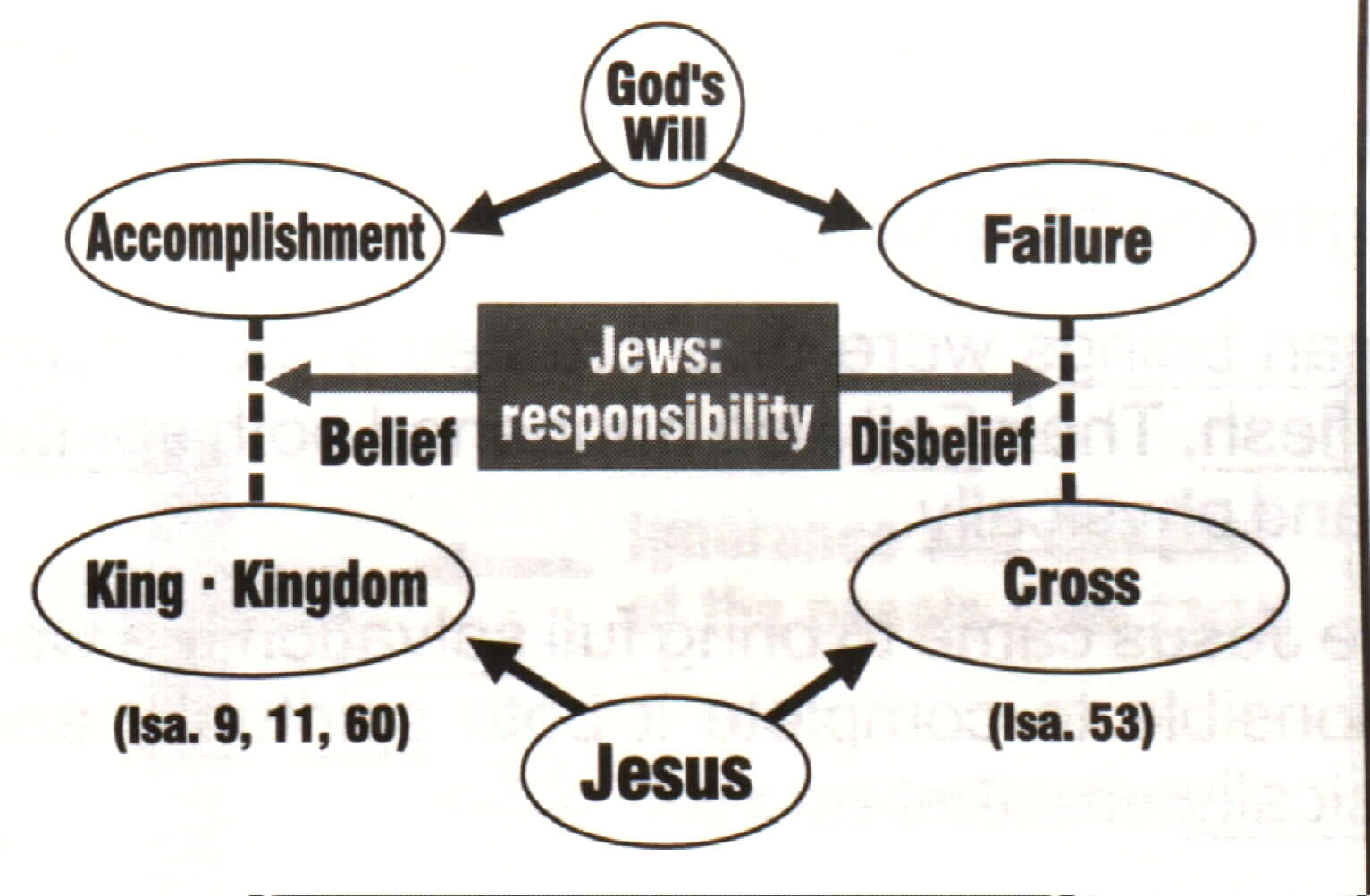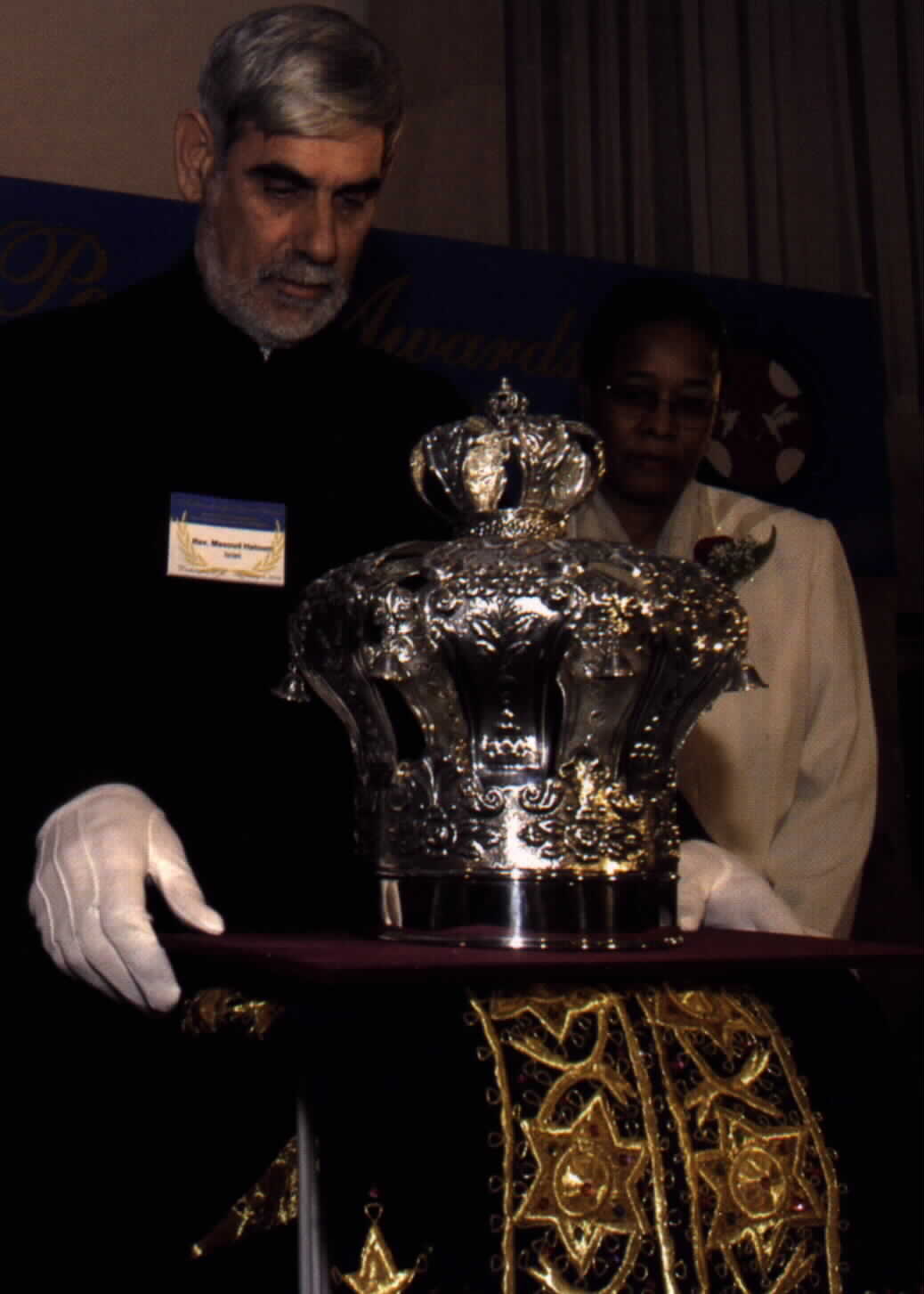The Messages of Jesus, Paul and Rev. MoonJesus of Nazareth who proclaimed himself as the promised Messiah to Israel, made the greatest impact on the latter two millennia of history. Paul, previously Saul of Tarsus, was a prolific writer and missionary of the Christian message to many Gentile nations of Asia Minor and beyond. He did much to guide the early Church in matters of practical faith. As for Jesus himself, he spoke with confidence and authority concerning himself and his message. His central kerygma: "I am the way, the truth and the life; no one comes to the Father, except by me." (Jn.14:6). On the basis of his core proclamation, he taught: repentance, rebirth, redemption, resurrection, and eternal life. Jesus spoke uncompromisingly of the required dedication needed by believers to build the Kingdom of Heaven on earth. This was his greatest concern. In Jesus’ self-understanding as Messiah, he first commanded the people of Israel to “Repent, for the Kingdom of Heaven is at hand!” (Mt.4:17). He then began to summon all in urgency and immediacy to join him in building the Kingdom (Lk.9:60). As Messiah, he spoke of the future and the present as being juxtaposed in the moment of his presence: “The hour is coming, and now is….” (Jn.4:23; 5:25). His sense of divine authority, absoluteness and confidence stirred awe in many and indignation in others when he made statements such as: “Before Abraham was, I am.…(Jn.8:58). The Son of Man has power on earth to forgive sins.” (Mk.2:10). And, “I and the Father are one.” (Jn.10:30). All these aforementioned announcements were natural to him because of his pure inheritance as the true Son of God, the incarnation of the Father’s ideal (the Word) of sonship, in the flesh (Jn.1:14).
Jesus stood firm to uphold this ideal and to testify to Israel and the world of his divine position before God the Father. This particular problem of disbelief of the Jews cause Jesus to go the way of the cross (Jn.15:24; Mt.16:19,20). With such a major obstacle in his path, unrelenting and ever-increasing, he spoke not only of his death and resurrection, but also of a Second Coming.
The core of his message was clearly messianic as it pertained to the victorious path for salvation and the establishment of the Kingdom of God (Lk.1:31-33). His rejection and crucifixion however, mirrored the path of the suffering servant (Is.53); this meant that the victorious Messiah’s course (e.g: Is.9:6-7; chps.11 & 60; et al) was yet to be accomplished. Jesus, knowing that he had to depart, and being full of grief concerning his unfulfilled messianic course (Mt.26:38-42; Jn.14:30), encouraged his disciples to be faithful to the end (15:4). Paul who greatly contributed to the persecution of the early followers of Jesus, was witnessed by the resurrected Lord. He focused on the death and resurrection of Jesus. The obvious, post facto (post-resurrection) position of all believers would therefore be; to preach the crucified and resurrected Christ. Paul’s message accentuated this. (1Cor.1:23; 2:2; Rom.6:3;). At best, Paul preached an interim ethic of the Kingdom, and, as he humbly stated: “He knew in part and prophesied in part….”(1Cor.13:9). Although he did his utmost, he could not resolve the division and war he found in himself. (Rom.7:15). This, of course, is not a problem only common to Paul, but all of us. The reason being: division of mind and body (sin) in man, rooted in and inherited from the fall of Adam and Eve, could not be resolved by the rejection and killing of the Messiah (Jn.8:24). But only through the belief, acceptance and fulfillment of the Messiah’s word in man (5:24; 8:51; Mt.5:48). This is also why God said, in the Old Testament, He desired obedience, love and mercy to sacrifice. (1Sam.15:22;Hos.6:6). Paul, in his great commitment of faith in the crucified and resurrected Lord, felt frustrated that he could not overcome this serious problem (conflict of mind and body) within himself (Rom.7:24). He saw, however, that the return of Christ would be his substantial hope for full liberation (8:23-25). He preached an heightened imminence of Jesus’ return and greatly encouraged diligence of the faithful to a strong spiritual and moral lifestyle in preparation (Eph.6:18; 1Cor.7:29; 6:18-20).
He comforted many who were unsure about the fate of those who had passed on. He told them that: (1Thess.4:16-18). This supernatural and apocalyptic view of Jesus’ return (to catch away believers in the air), interpreted literally, has, even today, become a staple in the doctrinal diet of many Christians. Like most of the Jews in Jesus’ time, they misconstrued certain figurative expressions of important dispensational matters as being literal (e.g.,Dan.7:13; Jn.7:27; *6:33, 41-42). Paul gave certain degree of pragmatic guidance on sexual matters to those married and unmarried. He encouraged some to chastity, and others to marry (1Cor.7:5-9). In his great zeal to evangelize people for Christ, he encouraged believers to practice flexible strategic maneuverings to witness and attract the many of varying ethnicity and status (1Cor.9:19-23). Paul’s views on many issues such as circumcision, women’s issues, the Law, slavery, and others, brought him no little contention with fellow disciples. Many truly wanted to oust him. In the eyes of some, his convoluting logical extenuations on the Law cause many to hold him in suspect. Even Peter had to search himself deeply to find heart to fully reconcile with him. Beyond what may be considered negatives about Paul, he displayed a genuine heart of dedication toward God and Christ. He drew from his experiences of many trials, tribulations and life-risking encounters to spread the message that “we are justified by faith in the redemption brought by Jesus.” (Rom.3:24). Though Paul himself was not the Messiah, he gave his testimony extensively, telling others to: “Follow me as I follow Christ.” (1Cor.11:1). In this sense, he set himself up as one who had traversed the precarious path from the world of death to the one of life in Christ (Mt.7:14). There is no doubt that Jesus had a superior understanding and insight above all into the providential workings of God: His principles, standard and methods. Afterall, he came as the Messiah. When he spoke of the “Coming of the Son of Man” as it related to the Second Coming (Lk.17:24-37; 21:36; 18:8), he did so, knowing God’s principle of mission succession of an ascended spirit person passed to a physical person. (e.g., Ezk.37:24,25 and Mt.11:14; 17:10-11). In the spirit of this principle, Jesus showed John that “the one who overcomes, as he overcame, would received his (Jesus’) name, mission and authority”.(Rev.3:12; 2:26-28). He later showed him (John) the birth of this new messianic personality (12:5).
Even though the disciples of Jesus eagerly anticipated his return (the Second Coming) in their lifetime, they never saw it. Jesus, as a spirit person, actually returned many times to be with them, after he resurrected (Bk. of Acts). He has also visited many Christians during the elapse of 2,000 years. Spiritually,
On Easter morning of 1936, Jesus appeared to Reverend Moon while he was praying on a mountain top near his village, in Korea. What then, is his central message to the world? In brief: God’s ideal, originally purposed through Adam and Eve, from the dawn of creation, must be fulfilled on earth. Adam and Eve were to have realized the three great blessings given by God (Gen.1:28): perfection of their individuality, building a true family, and establishing lordship over all creation. They failed to accomplish God’s original will due to their fall of premature and illicit sexual relationship (details in the Divine Principle). Had they fulfilled, they would have become the True Parents of humankind and God would have fully dwelled in them as the Original True Parent. Due to the Fall, Satan dominated man as the false parent, Adam and Eve became the false parents of humankind, passing a false blood lineage to all. God’s providence of salvation therefore, is to send the Messiah (a new Adam and Eve) in order to: 1), restore the mistakes of Adam and Eve by fulfilling the ideal of the True Family on earth (the heart of the three great blessings). And, 2), to set the conditions necessary to engraft fallen humankind into the true family. Through accomplishing the two-fold purpose above, the Kingdom of God, God’s long cherished ideal will be realized on earth. The coming of Jesus, Rev. Moon explains, was precisely to accomplish the above two-fold plan of God. However, Jesus was blocked from completing this purpose because of the disbelief of the chosen people. He was rejected and brutally crucified. Notwithstanding, through his sacrifice, he was able to secure spiritual salvation (only)—bringing believers to the level of Paradise. After tremendous hardship of intense spiritual battles with Satan and the evil spirit world, persecution, tortures, imprisonments, ridicule, misinformation, character assassination, and others; Rev. and Mrs. Moon have succeeded in building the true family foundation of three generations. They have also built the worldwide foundation needed to bequeath the Holy Marriage Blessing (of resurrection, rebirth and eternal life) to all families on the earth. This is the engrafting process of the marriage supper of the Lamb described in Revelation (19:7-9). In every public address that is now given, he proclaims to the world: “I have come as the Savior, Messiah, Second Coming Messiah, True Parent and King of Peace.” “Now,” he says, “is God’s time!”
|
 On the basis of his absolute faith, he felt assured that God had prepared some faithful ones to recognize his messiahship, and, in so doing, they would be willing to go the full distance with him ( Jn.6:65).
Although he did many wonderful works of healing and preaching, he was unable to turn the unbelieving hearts of the chosen people, especially the leaders of Israel.
On the basis of his absolute faith, he felt assured that God had prepared some faithful ones to recognize his messiahship, and, in so doing, they would be willing to go the full distance with him ( Jn.6:65).
Although he did many wonderful works of healing and preaching, he was unable to turn the unbelieving hearts of the chosen people, especially the leaders of Israel. The Kingdom of God on earth cannot be realized by the rejection and killing of the Messiah, but only through his full acceptance.
The Kingdom of God on earth cannot be realized by the rejection and killing of the Messiah, but only through his full acceptance. Jesus is always with those who are dedicated to Heaven’s cause (Jn.14:18, 21), because the messianic task to restore the Kingdom of Heaven on earth is not yet fully accomplished (Acts 1:6-7).
Jesus is always with those who are dedicated to Heaven’s cause (Jn.14:18, 21), because the messianic task to restore the Kingdom of Heaven on earth is not yet fully accomplished (Acts 1:6-7). He was 16 years old. Jesus identified himself and told him: “My mission was not completed on earth, for this cause you were born, will you accept to bring it to completion?” After deep reflection on his own sense of commitment to liberate his country from Japanese imperialism, Rev. Moon accepted. He has said many times: “Afterwards, I never looked back.”
He was 16 years old. Jesus identified himself and told him: “My mission was not completed on earth, for this cause you were born, will you accept to bring it to completion?” After deep reflection on his own sense of commitment to liberate his country from Japanese imperialism, Rev. Moon accepted. He has said many times: “Afterwards, I never looked back.”